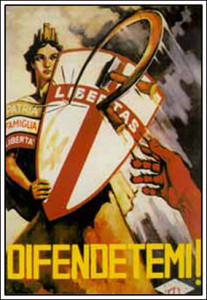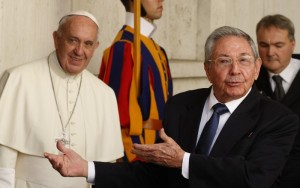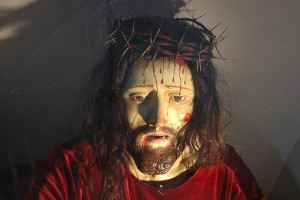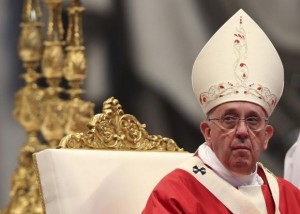 Credit where’s credit is due: I am not exactly a member of the Jerry Brown fan club, but the California Governor’s decision to sign his state’s cautiously drafted assisted suicide law (perhaps too cautiously: to take one example, those with Locked-In Syndrome might still be left trapped in their hell) deserves some praise, not just for his signature, but also the reasons he gave for it.
Credit where’s credit is due: I am not exactly a member of the Jerry Brown fan club, but the California Governor’s decision to sign his state’s cautiously drafted assisted suicide law (perhaps too cautiously: to take one example, those with Locked-In Syndrome might still be left trapped in their hell) deserves some praise, not just for his signature, but also the reasons he gave for it.
The New York Times:
Gov. Jerry Brown of California gave a deeply personal explanation on Monday for his decision to sign legislation allowing terminally ill patients to obtain a lethal dose of painkillers from a doctor to hasten their death. When the law goes into effect next year, California will become the fifth state, after Oregon, Washington, Montana and Vermont, to enact and retain aid in dying or physician-assisted suicide laws. Many other states are considering similar laws; they ought to follow the example of these pioneers.
The California law has robust protections to protect patients from recklessly taking their own lives. Two different doctors must certify that the patient has six months or less to live before prescribing the drugs, patients must be able to swallow the medication themselves, and they must be of sound mind and not under coercion from their families. Hospitals and doctors can decline to participate.
Governor Brown, a Democrat, said that he had carefully read the opposition materials presented by a number of doctors, religious leaders and champions of disability rights and had considered religious arguments that shortening one’s life is sinful. He also consulted with a Catholic bishop, two of his own doctors, and former classmates and friends, who took a variety of positions.
In the end, he reflected on what he would want in the face of his own death. “I do not know what I would do if I were dying in prolonged and excruciating pain,” he wrote. “I am certain, however, that it would be a comfort to consider the options afforded by this bill. And I wouldn’t deny that right to others.”
Well done, Governor Brown. That said, it remains troubling to read that, even after the vote in the California legislature, Brown thought it worth considering ‘religious arguments that shortening one’s life is sinful’. Much as I might disagree with them, there are good practical arguments to be made against assisted suicide, but why, beyond a certain point in the democratic process in a nation with a constitution providing for the separation of church and state, religious arguments should be given special consideration escapes me.
There’s been a lot of talk in recent years about how ‘religious liberty’ is under attack in the US, but that’s a stance that can easily turn into an insistence on religious privilege, an altogether less praiseworthy objective. Under the circumstances, the determination of various churchmen to ensure that all Californians should be forced to submit to the prescriptions of a faith that they might not share was more than a touch ironic.
And for all the other arguments that those churchmen make, that infamous slippery slope and so on, in the end their objections are religious, based, at their core, on the argument that the rights of their God trump those of the profoundly sick, an argument made none the more palatable by attempts to elevate ‘suffering’ into some sort of sacrament.
I posted a bit about this phenomenon the other day, but clear signs of a morbid cult of suffering can be found in an article in America magazine by Jessica Keating, the program director of the Office of Human Dignity and Life Initiatives at the University of Notre Dame. It was written in response to the assisted suicide of Brittany Maynard in Oregon earlier this year.
Keating:
For those who cannot see beyond the material horizon of death, suffering that does not appear to have proximate material benefit is emptied of the possibility of meaning.
Well yes.
Indeed, euthanasia and physician-assisted suicide are as much about unseemliness and fear of suffering as they are about death.
Pretty much.
With the advance of utilitarian idealism and medical technology, it seems that nothing but a peaceful death will be acceptable, wherein peace is reduced to the absence of pain, emotional and physical suffering or the loss of cognitive and physical abilities.
To describe the wish for a peaceful death as ‘utilitarian idealism’ is telling. Fundamentalism is what it is.
There is another narrative that is routinely neglected or, worse, rejected out of hand, a narrative grounded in the logic of the Cross. This is a narrative in which suffering unto death can be penetrated and transfigured by the mystery of love—particularly in cases like Ms. Maynard’s, when one is surrounded by loving family and friends. This transfiguration occurs in hidden intimacies. Choosing to die early forecloses such possibilities. Had she not taken her own life with the assistance of a physician, she, like many who suffer terminal illness, almost assuredly would have been stripped bare of her abilities, perhaps even her mind. Indeed, there was nothing material for her to gain in suffering, only loss. Almost assuredly there would have been no inspiring recovery story to tell at the end. Rather, Ms. Maynard might have become unproductive, unattractive, uncomfortable. She would just have been. But she would have been present in a web of relationships. Even had she fallen unconscious, she likely would have been read to, washed, dressed and kissed. She would have been gently caressed, held and wept over. She would simply have been loved to the end.
That was a destiny that was hers to choose or to reject. ‘The logic of the Cross’, backed by coercion, would have denied her that freedom, that autonomy, that dignity, that relief.
As I said, ‘religious privilege’.










